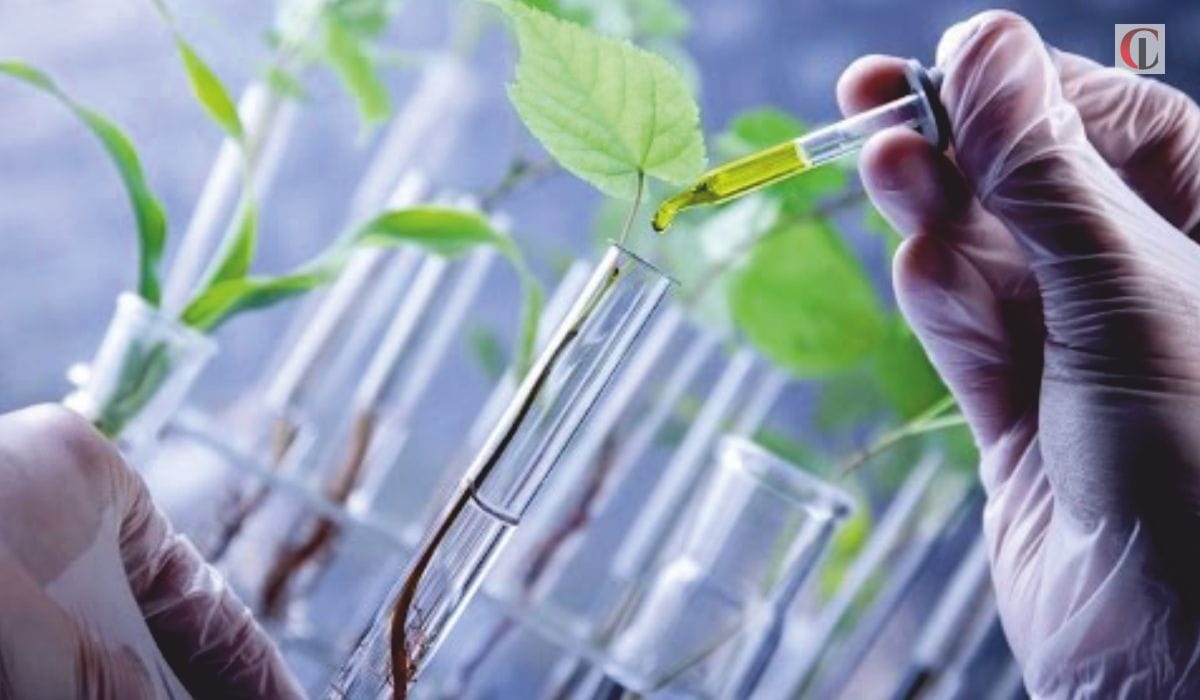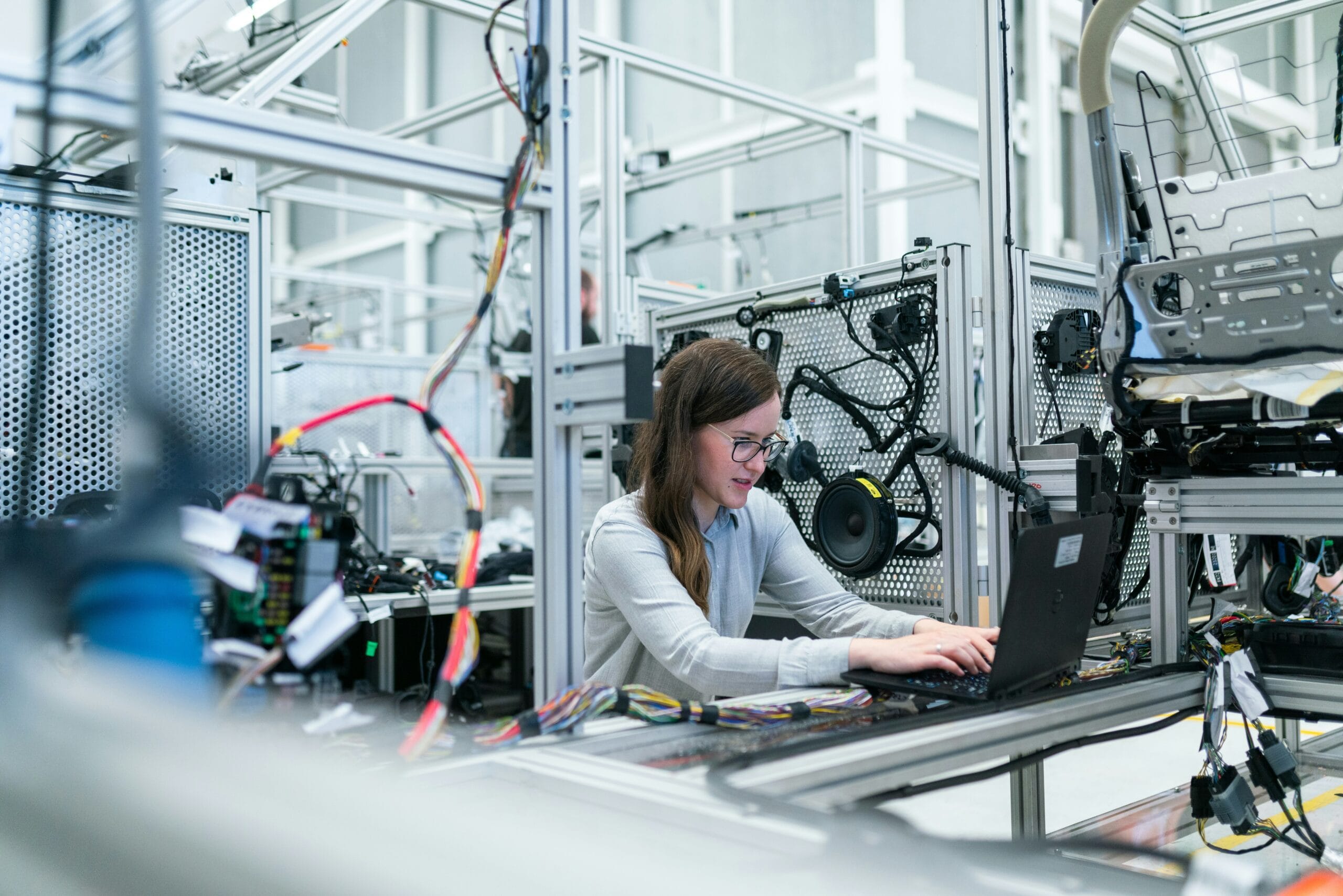Precision Agriculture Meets Biotechnology: A New Era of Smart Farming

In recent years, the agricultural landscape has been dramatically transformed by the rapid advancements in technology. “Precision Agriculture Meets Biotechnology: A New Era of Smart Farming” is reshaping how we cultivate crops, manage resources, and ensure food security for a growing global population. This article delves into the role of biotechnology in agriculture, showing how precision agriculture techniques are meeting genetic engineering and bioinformatics to foster a more efficient, sustainable, and resilient agricultural system.
The Intersection of Biotechnology and Precision Agriculture
Biotechnology in Agriculture
Biotechnology in agriculture has long been instrumental in addressing key challenges, such as improving crop yield, enhancing pest resistance, and reducing dependency on chemical inputs. Techniques like genetic modification (GM) and gene editing have provided breakthroughs in crop resilience, disease resistance, and adaptability to adverse conditions. Precision agriculture, on the other hand, emphasizes the application of technology to gather and analyze data about crop health, soil conditions, weather patterns, and resource usage in real time.
With the fusion of biotechnology and precision agriculture, farmers are equipped with enhanced tools to optimize every aspect of their operations. This synergy is essential for moving toward smarter, more sustainable farming practices that benefit both producers and the environment.
Key Components of Smart Farming
Data-Driven Decision Making
One of the cornerstones of precision agriculture is the collection and analysis of data. Sensors and Internet of Things (IoT) devices installed in fields gather real-time information on soil moisture, nutrient levels, temperature, and crop health. This wealth of data allows farmers to make informed decisions about planting, irrigation, and fertilization, often with pinpoint accuracy.
Biotechnology in agriculture complements this data-driven approach by supplying genetically engineered crops that can thrive in specific environmental conditions, respond positively to optimized inputs, and reduce the need for synthetic fertilizers and pesticides. For example, genetically modified crops resistant to drought can be effectively matched with data on soil moisture, allowing farmers to optimize water usage even in water-scarce regions.
Genomics and Gene Editing: Customized Crops for Precision Needs
Genomic research and gene-editing technologies like CRISPR have brought unprecedented precision to crop breeding. By identifying specific genes responsible for desired traits, such as pest resistance or faster growth cycles, scientists can modify crops with remarkable specificity. This approach enables the creation of tailored solutions for different farming environments.
Through biotechnology in agriculture, farmers can cultivate crops specifically designed to thrive under unique conditions. For instance, biotech crops with enhanced nutrient uptake efficiency can make the most of the existing soil nutrients, reducing the need for additional fertilizers. This approach benefits farmers economically and minimizes nutrient runoff, a significant contributor to environmental pollution.
Artificial Intelligence (AI) and Machine Learning in Precision Agriculture
AI and machine learning algorithms are revolutionizing precision agriculture by helping to interpret vast amounts of data collected through IoT and satellite imagery. These technologies allow farmers to predict crop yield, identify pest infestations early, and detect disease outbreaks at a nascent stage.
For example, machine learning models can analyze weather data to forecast drought periods, helping farmers plan ahead. Combined with biotechnology, farmers can plant drought-resistant biotech crops in regions susceptible to prolonged dry spells, ensuring food security even in unpredictable climates.
Autonomous Machinery and Robotics
Autonomous machinery, such as self-driving tractors and drones, is another transformative element of precision agriculture. Drones equipped with advanced imaging capabilities can monitor large fields, assess crop health, and detect problems from above, providing a holistic view of the field in a fraction of the time traditional methods would take.
Biotechnology in agriculture complements these efforts by creating crops that respond predictably to specific conditions, making it easier for robotic systems to identify and address issues. For example, crops genetically modified to display visible color changes under stress can be easily monitored by drones, helping farmers take quick action to mitigate potential losses.
Environmental Benefits of Biotechnology

Reducing Chemical Inputs and Pesticide Use
One of the primary advantages of combining biotechnology in agriculture with precision farming is the ability to reduce the use of chemical pesticides and fertilizers. Pest-resistant biotech crops minimize the need for pesticides, which not only reduces costs but also lowers the risk of chemical runoff into water sources.
With the precise application of inputs made possible by IoT and sensor data, farmers can apply fertilizers and pesticides only where they are truly needed. This targeted approach significantly reduces the environmental footprint of farming, contributing to healthier ecosystems and promoting biodiversity.
Water Conservation and Efficient Resource Use
Water scarcity is a pressing global issue, and agriculture is one of the largest consumers of freshwater. Precision agriculture enables more efficient water use through smart irrigation systems that release water based on real-time soil moisture data. Biotechnology complements these efforts by offering drought-resistant crops that can thrive on less water, ensuring crop survival even in arid regions.
By deploying precision agriculture techniques in conjunction with biotech crops, farmers can achieve higher yields with fewer resources. This efficient resource use is crucial for promoting sustainable agriculture practices and addressing the challenges posed by climate change.
Boosting Profitability and Reducing Waste
Enhanced Crop Yields and Profit Margins
The combined power of biotechnology in agriculture and precision farming allows for optimized crop yields. Farmers can produce more food per acre while reducing inputs, such as water, fertilizers, and pesticides. This approach results in lower operational costs and higher profit margins, making agriculture more viable for small and large-scale farmers alike.
In addition, biotech crops often have shorter growth cycles and longer shelf lives, allowing farmers to meet market demand more effectively and reduce post-harvest losses. Precision farming practices further reduce waste by optimizing planting, harvesting, and storage methods.
Supporting Small Farmers with Accessible Technologies
While the adoption of precision agriculture technologies may initially seem costly, the return on investment is significant. Furthermore, advances in biotechnology have made it possible to develop seeds tailored to small-scale farming environments. These innovations are especially important for farmers in developing countries who may not have access to extensive resources but can benefit from more resilient, high-yield crops.
Challenges and Considerations in the Adoption of Smart Farming
The Cost of Technology and Need for Infrastructure
While the benefits of combining biotechnology in agriculture with precision farming are clear, there are challenges to widespread adoption. The cost of technology, including sensors, drones, and autonomous machinery, can be prohibitive for small farmers. Additionally, effective implementation requires robust internet connectivity and infrastructure, which may be lacking in rural areas.
Governments and organizations worldwide
Governments and organizations worldwide are increasingly investing in technology and infrastructure development to make precision agriculture more accessible. Through subsidies, grants, and research initiatives, they aim to democratize these technologies and enable farmers from diverse backgrounds to benefit from smart farming practices.
Ethical and Environmental Concerns
Biotechnology in agriculture, particularly genetic modification, has sparked debates over food safety, biodiversity, and ethical considerations. Some fear that genetically modified crops may lead to reduced biodiversity, while others express concerns over long-term health impacts. However, regulatory bodies ensure that biotech products undergo rigorous testing before reaching the market to ensure their safety for consumers and the environment.
The Future of Agriculture
The merging of biotechnology in agriculture with precision farming is undoubtedly ushering in a new era of smart farming. This integration holds the potential to address some of the most pressing global challenges, from food security and water scarcity to climate change and sustainable resource management.
Artificial Intelligence
As advancements continue, the role of artificial intelligence, big data, and robotics in agriculture will grow, making it possible to design increasingly efficient, sustainable, and resilient agricultural systems. By harnessing the power of biotechnology and precision farming, we are paving the way for an agricultural revolution that benefits both people and the planet.
Conclusion
In conclusion, the convergence of biotechnology in agriculture and precision agriculture is not only transforming how we grow food but also how we think about our relationship with the environment. The future of farming is one where technology, innovation, and sustainability work together, empowering farmers and feeding a global population more responsibly than ever before.




